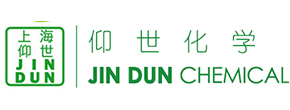Europe is actively promoting green transformation of energy and economy
2023/10/24
From the perspective of major global economies, the energy transformation path adopted by the EU is different from that of China and the United States. It can be said that the European side has indeed taken the lead in market construction, but faces enormous difficulties in industrial cultivation. Peng Wensheng, Chief Economist of CICC, once proposed that "there have been significant differences in the policy approaches and paths for green transformation in major economies over the past 20 years." There are two different policy paths to achieve a negative green premium. One is to increase the cost of fossil energy use, such as forming carbon emission prices through carbon trading markets; In addition, it is to reduce the cost of using green and renewable energy. Europe mainly chooses the former, China chooses the latter, and the United States follows the middle path.
As a comparison, China's cultivation of the new energy industry through industrial policies can be said to be very successful. Since the beginning of this year, the sales of "new three samples" such as electric vehicles, new energy batteries, and photovoltaic equipment in China have increased significantly. In the first half of this year, the total export of China's "new three samples" products increased by 61.6%, driving the overall export growth by 1.8 percentage points. The rapid expansion of China's green industry indicates that China has formed a huge advantage in the new energy industry. This cannot be achieved without sustained industrial policy support and the promotion of green development policies that implement the "dual carbon" goals; Meanwhile, this is closely related to the cluster advantages of China's manufacturing industry chain and supply chain; Thanks to China's huge demand in the new energy market. However, for the EU, there is a concern of "making a wedding dress for others". "Europe has simply shifted its dependence on Russian natural gas to China's clean energy equipment. Its countervailing investigation on Chinese produced electric vehicles and new energy equipment indicates that the EU is facing concerns about the development prospects of its own new energy industry.
In order to cultivate its own industry and compete strategically with China, the United States has also begun to support its own industry through a series of policies in implementing green development. Last year, the Inflation Reduction Act in the United States began to be implemented, with over $360 billion in spending plans to curb climate change and promote clean energy use. One of the purposes of this bill is to increase investment in the domestic new energy industry in the United States in the future, cultivate competitive domestic new energy enterprises, and help the United States achieve green transformation. In response, in March this year, the European Commission announced the "Net Zero Industry Act", proposing that by 2030, the domestic manufacturing capacity of strategic net zero technology will be close to or meet 40% of the EU's annual deployment needs. The EU has implemented a series of policies on the supply side of the new energy industry, aimed at cultivating and enhancing the competitiveness of the new energy industry within EU countries.
It should be pointed out that in the current global green transformation, the role of government policies has become increasingly significant. Green "carbon reduction" itself is actually a policy choice for sovereign countries to address climate change; In addition, in the process of "breaking" and "establishing" the energy industry, the development of industries in various countries inevitably requires policy support; At the same time, against the trend of globalization, the increase in geopolitical risk factors has also strengthened policy intervention in countries' green transformation to cope with new risks. The EU's energy transformation also faces policy competition with other sovereign economies. Although the EU sees the respective advantages of China and the United States and adopts targeted policy responses, it is not aware of the differences caused by its own actual situation.
Due to the unique geographical environment and fragmented economy of the region, the EU and its member states are at a disadvantage in policy competition. On the one hand, its overly aggressive transformation policy did not take into account the EU's disadvantages in energy resources and the shortcomings of new energy production capacity itself. Previously, Europe, accustomed to Russia's cheap natural gas resources, was very active in phasing out coal-fired power and was not proactive in nuclear power, which belongs to clean energy, making its path choice for new energy transformation too narrow. After the Russia-Ukraine conflict, European countries' reckless energy sanctions aggravated the imbalance of their traditional energy supply. However, due to their insufficient new energy capacity, they had to rely on China and other external resources to supplement.
Under the circumstances that the Russia-Ukraine conflict has become protracted and the energy crisis is difficult to effectively alleviate, the EU's green transformation plan is facing a more difficult situation. Some analysts say that Europe is falling into a dilemma of an "energy impossible triangle": supply security - energy security, environmental friendliness - energy transformation, low prices - energy economy. These three goals cannot be met simultaneously and need to be ranked and chosen in different situations.
Recently, the European side has also begun to reflect on its policies. A recent article in The Economist suggests that Europe should not replicate Biden's economics. The article mentions the difficulties faced by Europe in its energy transformation. "Europe has lost Russia's cheap fossil fuels, making its transition to clean energy more like a national security issue. Germany, the largest economy in Europe, is concerned that China and the United States, which receive state subsidies for electric vehicle manufacturers, will take market share from the German automotive industry." The article reflects on Europe's efforts to achieve energy transformation, stating that, unlike the United States, The European Union has established a carbon pricing mechanism, and the carbon trading market has been operating successfully. Therefore, for Europe, the best economic policies must be based on its past market friendly practices. The EU should cultivate a common and competitive green single market. This means limiting national aid regulations and allowing carbon prices in new industries to grow faster than planned targets, as well as taking citizens' climate dividends seriously. In order to promote economic growth, new government spending in Europe should be focused on infrastructure construction, rather than national subsidies. Of course, this reflection still has idealistic elements, but from another perspective, it also indicates that the EU's energy transition policy is facing difficulties. These reflections hope that the EU will return the focus of energy transformation to market construction, but the global pattern of the new energy industry has undergone significant changes, and the shortcomings of the industry make it difficult for the EU to achieve the goal of both development and transformation.
Under the dilemma, Europe has had to shift from "climate security" to "energy security". Recently, after Brexit, the UK has postponed its "carbon reduction" plan; Prior to this, Denmark had already announced a delay in "carbon reduction"; Austria, the Netherlands, France and other countries have successively announced the restart of coal-fired power or postponed its withdrawal, and have postponed carbon neutrality targets. This has turned Europe's once ambitious green transformation plan into a "phantom".
The final analysis conclusion: As a European country with a shortage of traditional energy resources and a more urgent demand for green transformation, in recent years, it has faced internal and external difficulties in the process of energy transformation. In this regard, there are geographical risks in the Russia-Ukraine conflict, factors in industrial restructuring in the context of counter globalization, and policies of the EU. Its overly radical and politicized transformation policy did not take into account the EU's weaknesses in energy resources and the shortcomings of new energy production capacity itself. Under the policy dilemma, Europe's energy transformation has to shift from "climate security" to "energy security".
JIN DUN CHEMICAL has built a special (meth) acrylic monomer manufacturing base in ZHEJIANG province. This makes sure the stable supply of HEMA, HPMA, HEA, HPA, GMA with high level quality. Our special acrylate monomers are widely used for thermosetting acrylic resins, crosslinkable emulsion polymers, acrylate anaerobic adhesive, two-component acrylate adhesive, solvent acrylate adhesive, emulsion acrylate adhesive, paper finishing agent and painting acrylic resins in adhesive.We have also developed the new and special (meth) acrylic monomers and derivatives. Such as the fluorinated acrylate monomers, It can be widely used in coating leveling agent, paints, inks, photosensitive resins, optical materials, fiber treatment, modifier for plastic or rubber field. We are aiming to be the top supplier in the field of special acrylate monomers, to share our rich experience with better quality products and professional service.

